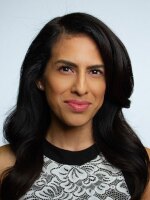At 45, Wendy Shurelds was diagnosed with stage 2 breast cancer. She had been following her doctor's advice to undergo screenings every other year.
“It never dawned on me that missing, you know, a year, that the following year I would be diagnosed with breast cancer,” Shurelds said.
The U.S. Preventive Services Task Force’s latest breast cancer guidelines recommend women with average risk get mammograms every other year starting at age 40, rather than 50. The task force said this approach could save more lives. And has greater potential to benefit Black women, who are more likely to die from breast cancer than white women, despite fewer diagnoses.
Shurelds said the recommendation falls short.
“This was a discussion that my support group had and they were very upset,” Shurelds said. When they are diagnosed at a later stage, that's almost like a death sentence to them. So to actually miss a year of not getting a mammogram is just detrimental.”
Breast cancer advocates say annual screenings offer the greatest chance to catch cancers early, when treatments are more effective and survival rates are higher.
Dr. Lori Uyeno is a breast surgeon affiliated with Sharp Memorial Hospital. For years, she’s followed the guidelines of organizations like the American Cancer Society, and recommends her patients get yearly screenings starting at 40.
“We're seeing that we still pick up a lot of women who are having breast cancer at a younger age. And the recommendations have been balancing risks and benefits, and so I always felt, like other professional organizations, that the benefits did outweigh the harms.”
Annual exams can have downsides, too. By harms, Uyeno means higher false positive rates, which occur when a mammogram is flagged as abnormal but no cancer is present. This can lead to stress and additional imaging, biopsies, or invasive treatments that may be unnecessary.
She said the most common breast cancers are slow growing.
“But there are some breast cancers that are going to grow more rapidly, or they're going to hit sort of a growth spurt and that's what's unpredictable,” Uyeno said.
After losing her close friend, Shurelds started Many Shades of Pink, a San Diego-based breast cancer advocacy organization to empower Black women.
“I told them that you do not have to accept it. You fight and advocate for yourself that you want your screening,” she said. “We can't afford to have this as African American women. We just can't. It's unacceptable.”





